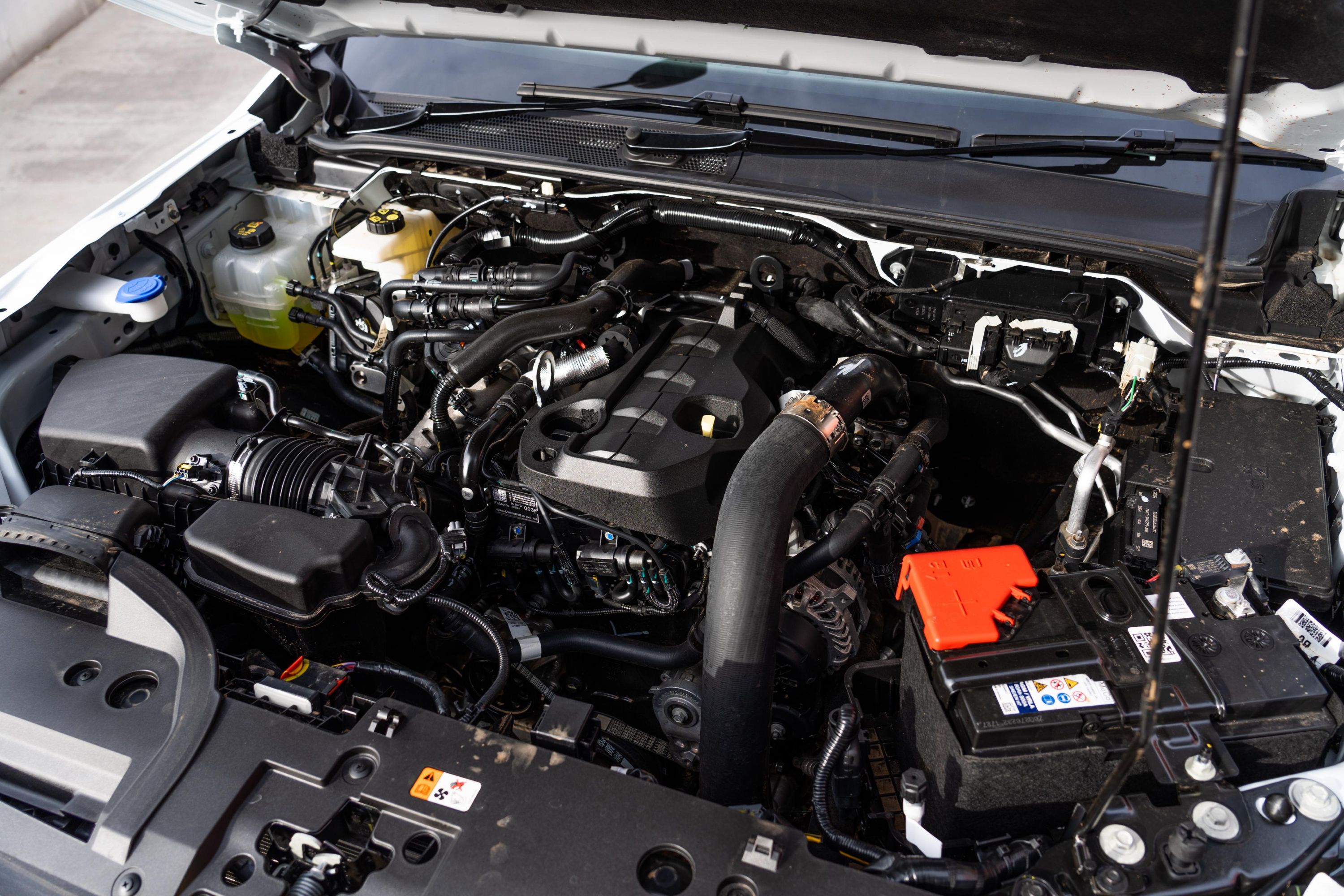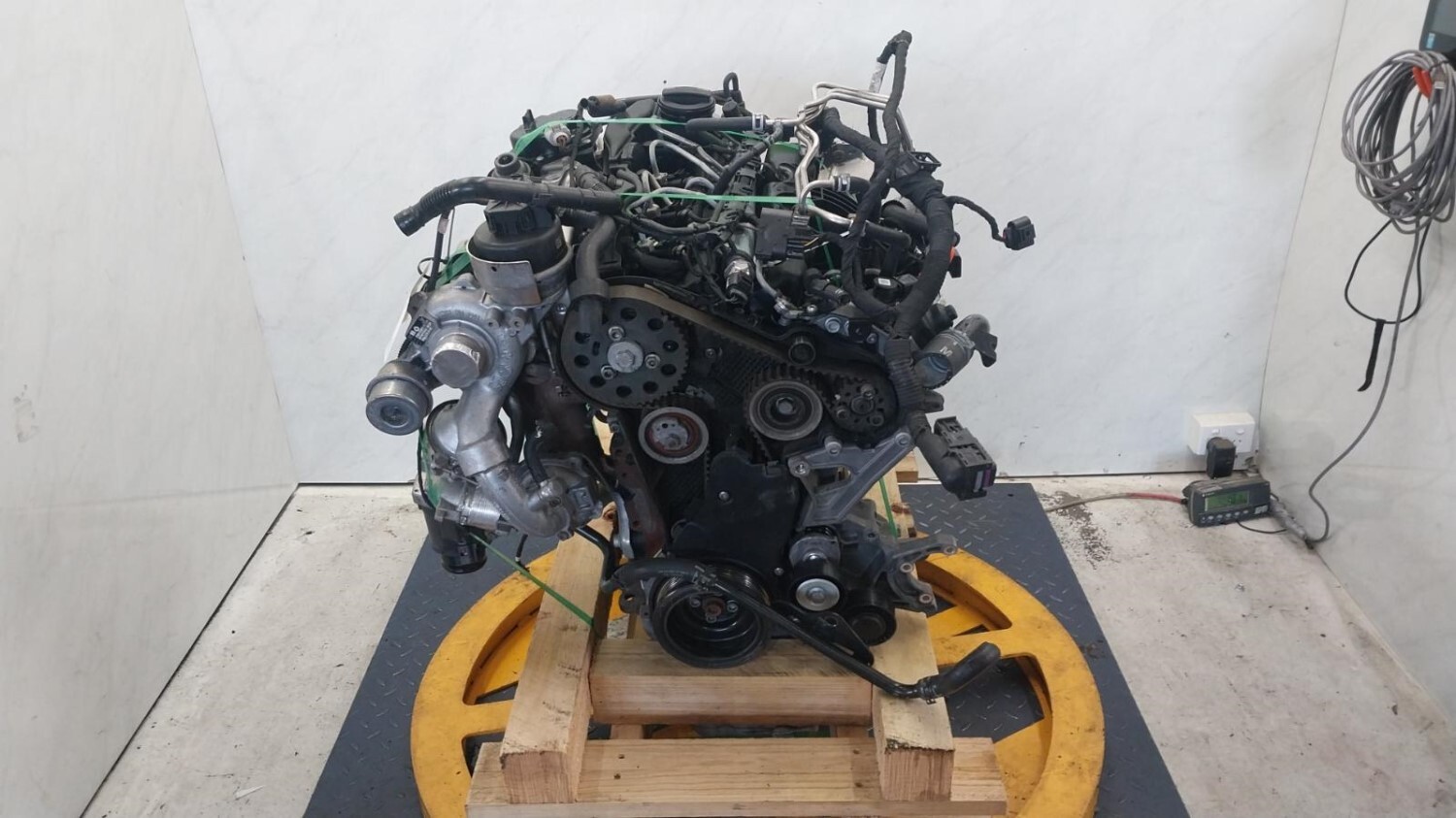Vital Considerations and Tips for Picking the Right Engine for Your Needs
Choosing the ideal engine is a multifaceted choice that requires cautious factor to consider of various elements to make certain optimal performance for your certain demands - amarok engine for sale. Understanding your designated application is paramount, as the demands of industrial, commercial, or leisure usage will dramatically influence your selection. Additionally, reviewing key specs such as horse power, torque, and fuel efficiency, together with upkeep demands and spending plan constraints, will direct you toward a sustainable investment. Nevertheless, the details of engine option expand beyond these fundamentals, triggering a better assessment of critical elements that can ultimately influence your contentment and success.
Determine Your Purpose
Establishing your objective is a critical primary step in choosing the ideal engine for your requirements. Comprehending the particular application you have in mind will guide your decision-making procedure and make certain that you select an engine that lines up with your functional demands. Whether you need an engine for an industrial car, industrial machinery, or a recreational task, each circumstance demands different efficiency characteristics and capacities.
Take into consideration the setting in which the engine will operate. Will it be subjected to hefty loads, severe temperature levels, or extended use? Assessing these variables will certainly aid you determine the essential power output, gas efficiency, and toughness required to satisfy your objectives.
Additionally, think of the long-lasting ramifications of your choice. Budget constraints, maintenance demands, and accessibility of parts are necessary factors to consider that will impact your overall complete satisfaction and operational efficiency.
Ultimately, articulating your function will certainly simplify the option process and empower you to make an informed choice. By plainly specifying your purposes, you can review possible engines better and pick one that not just meets your current needs but also supports your future objectives.
Evaluate Engine Specifications
Once you have clearly expressed your objective, the following step is to assess engine specifications. This procedure entails a thorough evaluation of different technical information that can dramatically influence efficiency and viability for your intended use.
Begin by evaluating the engine's horsepower and torque rankings. Horsepower is vital for establishing the engine's capacity to do job, while torque is vital for comprehending exactly how well it can manage heavy lots or velocity. Additionally, take into consideration the engine displacement, as it often associates with power output and efficiency.
Following, take a look at the engine typeâEUR" whether it is a gas, diesel, or alternative gas engineâEUR" as each type has distinctive qualities and applications. Focus on the engine's setup (e.g., inline, V-type), as this can affect size, weight, and general efficiency.
One more vital element is the engine's air conditioning system, which can influence dependability and maintenance needs. Review the producer's online reputation and warranty offerings, as these can give insights into long-lasting efficiency and support. Thoroughly examining these requirements will assist guarantee that you select an engine that lines up with your specific needs and operational objectives.
Take Into Consideration Gas Efficiency
Fuel effectiveness is a crucial element to think about when choosing an engine, as it straight influences functional prices and ecological sustainability. An engine's gas efficiency is generally gauged in miles per gallon (MPG) for lorries or in specific fuel consumption (SFC) for aircraft and aquatic engines. Greater fuel efficiency not only reduces the helpful site amount of gas eaten yet additionally decreases greenhouse gas exhausts, making it a liable selection for eco-conscious customers.
When reviewing engine alternatives, it is important to analyze the driving conditions and meant use. Engines optimized for freeway driving might display much better fuel efficiency contrasted to those made for stop-and-go web traffic. Furthermore, think about the engine's innovation, such as turbocharging or hybrid systems, which can significantly boost gas effectiveness.

Assess Upkeep Demands

Some engines may call for more regular oil adjustments, filter substitutes, or specialized servicing, which can affect your functional downtime. Engines with prevalent popularity usually have much better components availability, minimizing lead times throughout repairs.
An additional crucial element is the technological experience required for upkeep. Some engines may require customized training for specialists, which can limit your alternatives for service companies. Moreover, analyze whether the engine's design enables simple access to parts frequently needing upkeep, as this can substantially affect labor costs.
Spending Plan Your Investment
Understanding maintenance demands is simply one facet of selecting the ideal engine; financial considerations play an equally important function (amarok engine for sale). Developing a clear spending plan is essential, as it influences not only the preliminary acquisition cost but also long-term operational costs
When budgeting, consider both the ongoing expenses and ahead of time expenses such as fuel performance, upkeep, and prospective repairs. A relatively cost effective engine might incur higher expenses gradually as a result of poor gas economic situation or regular upkeep requirements. Additionally, examine the availability and cost of spare components, as well as the service warranties used by producers, which can give economic protection against unforeseen costs.
It is also important to element in possible funding choices or leasing arrangements, which can reduce immediate financial problems. Balance your desire for advanced features with your budget restrictions, guaranteeing that you buy an engine that fulfills your efficiency needs without jeopardizing economic security.
Eventually, an all-around budget will certainly equip you to make educated decisions, straightening your engine selection with both your operational needs and financial abilities, leading to a more sustainable investment over time.

Verdict
In conclusion, choosing the suitable engine requires a comprehensive understanding of certain demands and applications. Cautious assessment of engine requirements, fuel efficiency, and upkeep needs is essential for informed decision-making. Furthermore, developing a thorough budget guarantees that both first and continuous expenses are convenient. By sticking to these companies, factors to consider continue reading this and people can make a sustainable investment that straightens with their functional objectives and performance assumptions, ultimately enhancing general performance and performance.
Gas effectiveness is a critical aspect to take into consideration when selecting an engine, as it straight you can find out more affects operational prices and ecological sustainability. An engine's gas efficiency is typically gauged in miles per gallon (MPG) for automobiles or in specific fuel intake (SFC) for airplane and marine engines. Diesel engines generally supply much better gas performance than gas engines. Inevitably, picking an engine with a solid emphasis on fuel performance can lead to considerable lasting financial savings and add favorably to ecological efforts. Mindful evaluation of engine requirements, gas efficiency, and upkeep demands is vital for informed decision-making.